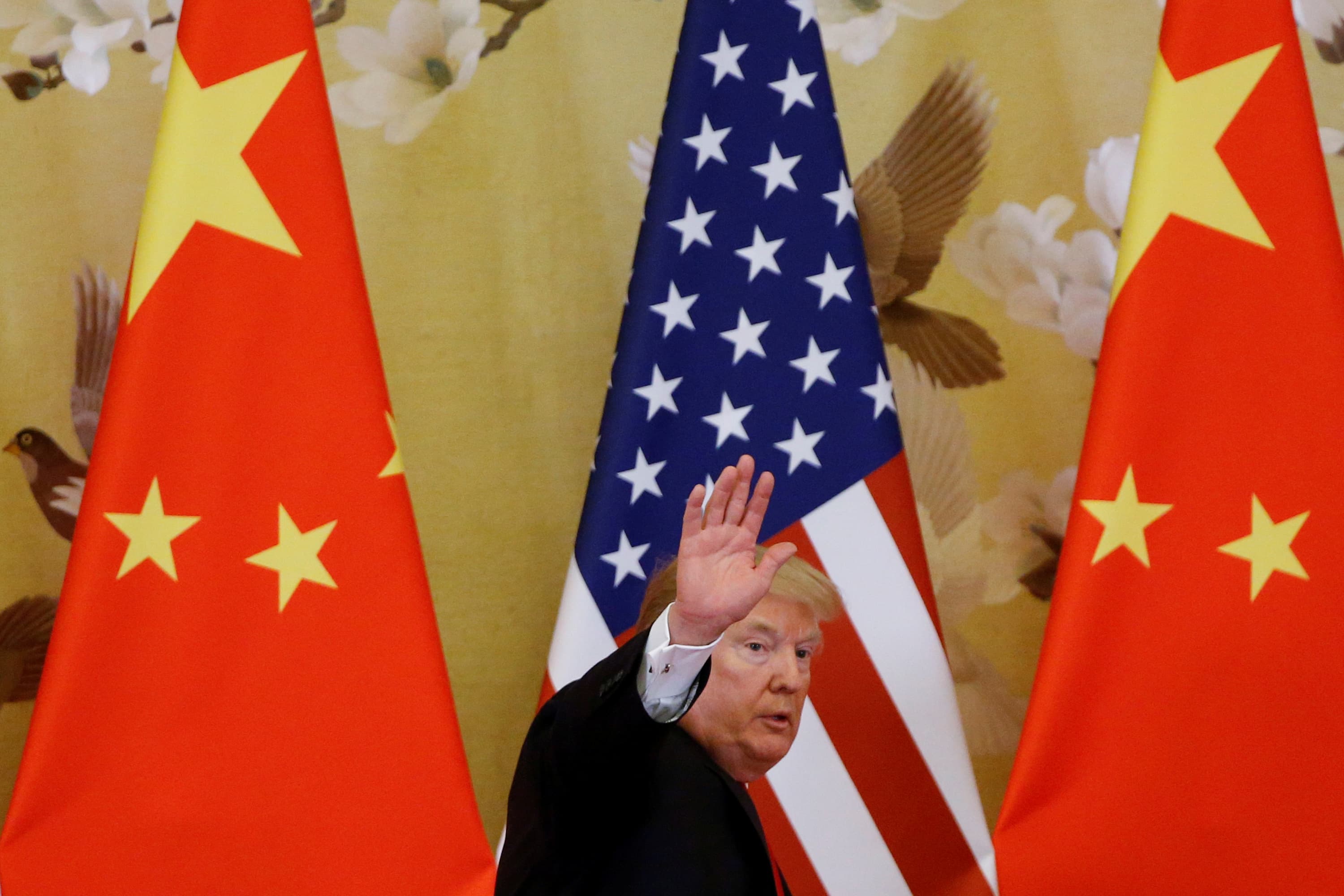
Donald Trump during bilateral meetings in Beijing in late 2017.
Jonathan Ernst | Reuters
Investors are overlooking the threat posed by the U.S.-China trade war, which could send the global economy into recession in less than a year, according to a research note published Sunday by Morgan Stanley.
"Investors are generally of the view that the trade dispute could drag on for longer, but they appear to be overlooking its potential impact on the global macro outlook," wrote Chetan Ahya, the investment bank's chief economist.
President Donald Trump last month raised the tariffs on $200 billion worth of Chinese goods from 10% to 25%. U.S. officials have also threatened to impose tariffs on $300 billion in remaining Chinese imports.
Ahya noted that the outcome of the trade war at the moment "is highly uncertain" but warned that if the U.S. follows through with 25% tariffs on the additional Chinese imports, "We could end up in a recession in three quarters."
"Is such a prognosis alarmist? We think otherwise," Ahya wrote.
In particular, investors are not fully appreciating the effect of reduced capital expenditures, which could drive down global demand, according to the bank.
An economic slowdown in early 2020 could hamstring Trump's electoral chances. Trump has campaigned on boosting growth and lowering unemployment, and made his deal-making abilities a signature aspect of his 2016 campaign. American voters head the the polls in November of next year.
While policymakers are likely to act to stem the effects of a trade war, "given the customary lag before policy measures impact real economic activity, a downdraft in global growth appears inevitable," according to Ahya.
Talks between the U.S. and China have stalled as the world's two largest economies trade rhetorical barbs and punishing tit-for-tat economic measures.
Earlier Sunday, the Chinese government released a white paper accusing the U.S. of starting the trade war and of being an unreliable negotiating partner. The document warned that the dispute had global implications.
On Saturday, the Chinese Xinhua news agency reported that state authorities were investigating American delivery giant FedEx. That news followed the Trump administration barring Chinese telecom giant Huawei from dealing with American suppliers.
Markets have tanked amid the trade uncertainty, with the S&P 500 down more than 6% last month and the Dow, as of Friday, marking losses for six straight weeks, the longest such streak in eight years.
The hit to equities was compounded last week by Trump's threat of new tariffs on Mexico if it does not take new action to prevent unlawful immigration into the U.S. Trump has said the U.S. will impose escalating tariffs on Mexican imports starting at 5% on June 10.
That threat, made via Twitter on Thursday evening, sent the major American indexes down more than 1% on Friday.
Much hangs on whether Trump and Chinese President Xi Jinping, or their representatives, are able to hash out a deal during the G-20 summit of world leaders in Japan later this month.
It is not yet clear if the two leaders will meet one-on-one. During a press conference Sunday, Chinese Vice Commerce Minister Wang Shouwen declined to confirm if a meeting will take place.
No comments:
Post a Comment